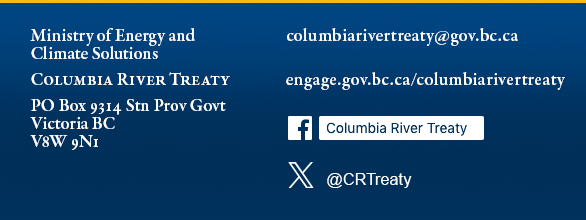Resources
Columbia River Treaty
Edition: February 2022
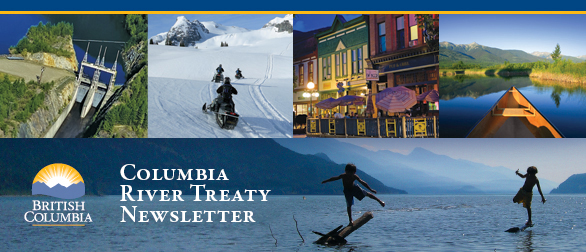
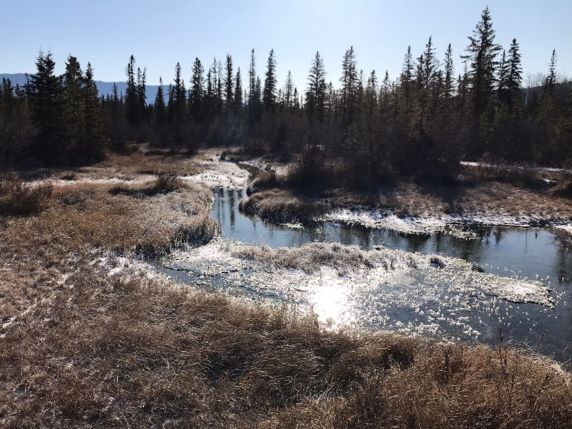
Headwaters of the Columbia River, Canal Flats, B.C.
Canada and the U.S. reconvene to advance Treaty negotiations
Negotiations to modernize the Columbia River Treaty have been underway since May 2018. Since then, Canada and the U.S. have discussed a wide range of issues tied to the internationally recognized water management agreement. From the Treaty’s original purposes of enhancing flood risk management and hydroelectric power, to incorporating ecosystems into the Treaty, increasing bilateral coordination of Libby Dam operations, and expanding operational flexibility to meet Canadian interests, the countries are exploring how the Treaty can be improved to reflect their needs today and into the future. This is an extremely complex process that will take time.
Read more
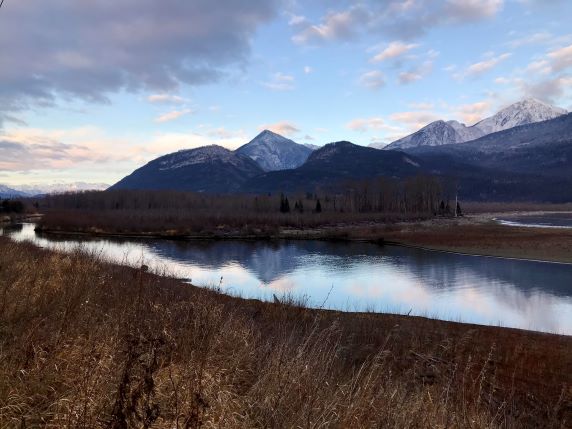
Lardeau Valley, B.C.
Columbia Basin Regional Advisory Committee expands its Indigenous learning
Input from Basin Indigenous Nations, residents and local governments is integral to the Columbia River Treaty modernization process. It guides the Canadian negotiating team’s discussions about the future of the Treaty. One of the key groups the Province engages with is the Columbia Basin Regional Advisory Committee, commonly known as CBRAC.
Formed in 2014, CBRAC is a diverse, multi-interest advisory body representing a broad range of perspectives, interests and geography that helps inform potential improvements to the Treaty and Columbia Basin hydroelectric operations. As Canada seeks to negotiate a modernized Treaty with the U.S., CBRAC must understand the main issues at play in order to provide valuable input. A critical part of this is understanding Indigenous Nations’ interests as they relate to the Treaty, as well as their role in the modernization process and future decision making.
Read more
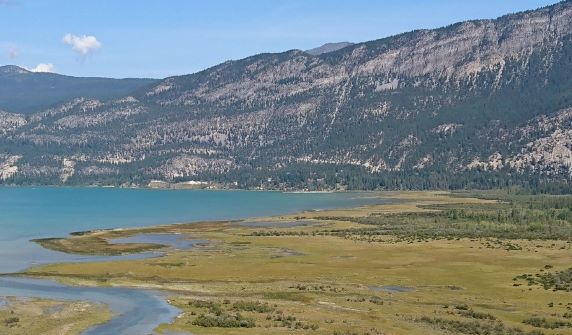
Columbia River Basin, B.C.
Connecting learners with the Columbia River
Written by the Wildsight Education Team
It has now been three and a half years since Wildsight first took a group of teenagers down the Columbia River in canoes as part of the Columbia River Field School (CRFS). Though the program has been stalled for two summers due to COVID-19, the CRFS experience - and the faces of our 32 alumni - are still fresh in our memories: the growing laughter that bubbles up as the group’s nerves give way to boisterous energy, the surprise of encountering such special places in one’s own backyard, the focus with which the students play out their roles in a mock negotiation of the Columbia River Treaty, and their reflections on new ties to people and place.
At Wildsight we’ve tried to make the most of the pandemic hiatus. Freed from planning trip logistics, we identified a need to make the kind of learning we do in the CRFS accessible to more students than can participate in a 15-day summer adventure. From this, ‘Teach the Columbia’ (TTC) was born.
Read more
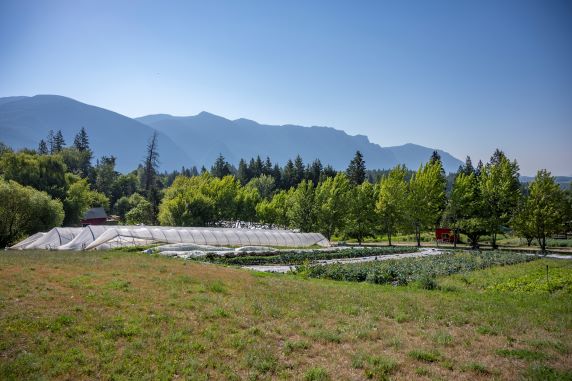
Cartwheel Farms, Creston, B.C.
Feedback on Columbia River Treaty Agriculture Discussion Paper now available
Throughout the Province’s engagement on the Columbia River Treaty, Basin residents have spoken of agricultural losses sustained when valley bottoms were inundated after construction of the Treaty dams. In response, the B.C. Columbia River Treaty Team has been exploring opportunities for enhancing support to the Basin agriculture sector, specifically related to impacts from the Treaty.
In June 2021, the B.C. Treaty Team published a discussion paper for public review and feedback that featured a comprehensive list of Basin agriculture interests, matched with existing or recently closed programs and initiatives that appeared to address those interests. The question posed to the public was: are there remaining gaps in addressing agriculture interests and concerns, given available programs and initiatives?
Read more
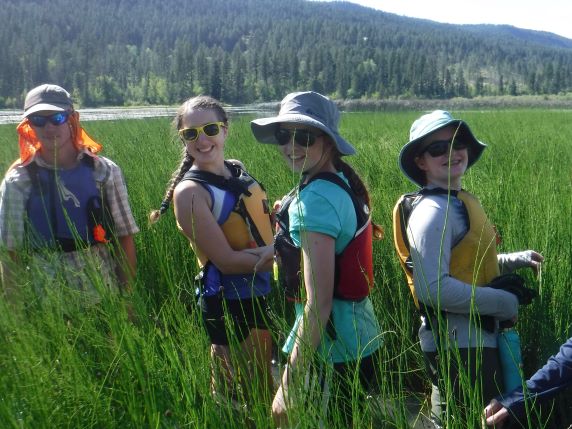
Gabriella Hurst, second from the left, and other Columbia River Field School students exploring the Columbia Basin Watershed
Youth Spotlight: Gabriella Hurst
How traveling the Columbia opened my eyes to what is happening in my own backyard
Hello! My name is Gabriella (Ella) Hurst, and I am a 17 year old from Nelson, B.C. Growing up, my family spent an incredible amount of time in the backcountry, which fostered my love of the outdoors. A close friend had participated in the inaugural year of Wildsight’s Columbia River Field School (CRFS) program and raved about it so much that I eagerly applied. My initial interest was to spend two weeks paddling a beautiful river and developing my backcountry knowledge. On my family canoe trips, I had never paid much attention to the body of water we were on, its intricate story or the lives it had affected. However, the CRFS encouraged me to pay more attention to the significance of these things.
Throughout the CRFS, I had the privilege to connect with and learn from biologists, ornithologists, ecologists, artists, Indigenous leaders, government officials, dam employees, farmers, and citizens of the Basin whose lives are significantly impacted by the river and the Columbia River Treaty.Read more
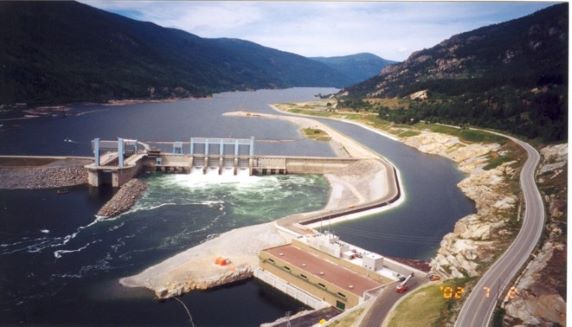
Hugh Keenleyside Dam and Arrow Lakes Generating Station, Castlegar, B.C.
Treaty Fact: What does the phrase 'Called Upon' mean in context of the Columbia River Treaty?
The phrase ‘Called Upon’ refers to a provision in the Columbia River Treaty that automatically takes effect in 2024 at the expiration of the 60-year Assured Flood Control, unless another flood risk management agreement is reached, and remains in effect as long as the Treaty dams exist, even if the Treaty is terminated.
Under the current Assured Flood Control regime, Canada operates with reserved space in its reservoirs to provide guaranteed flood risk management to the United States. The more impromptu Called Upon regime requires the United States to make “effective use” of their reservoirs to manage flood risk, drafting them more deeply and frequently, before “calling upon” Canada for additional storage to prevent damaging floods.

